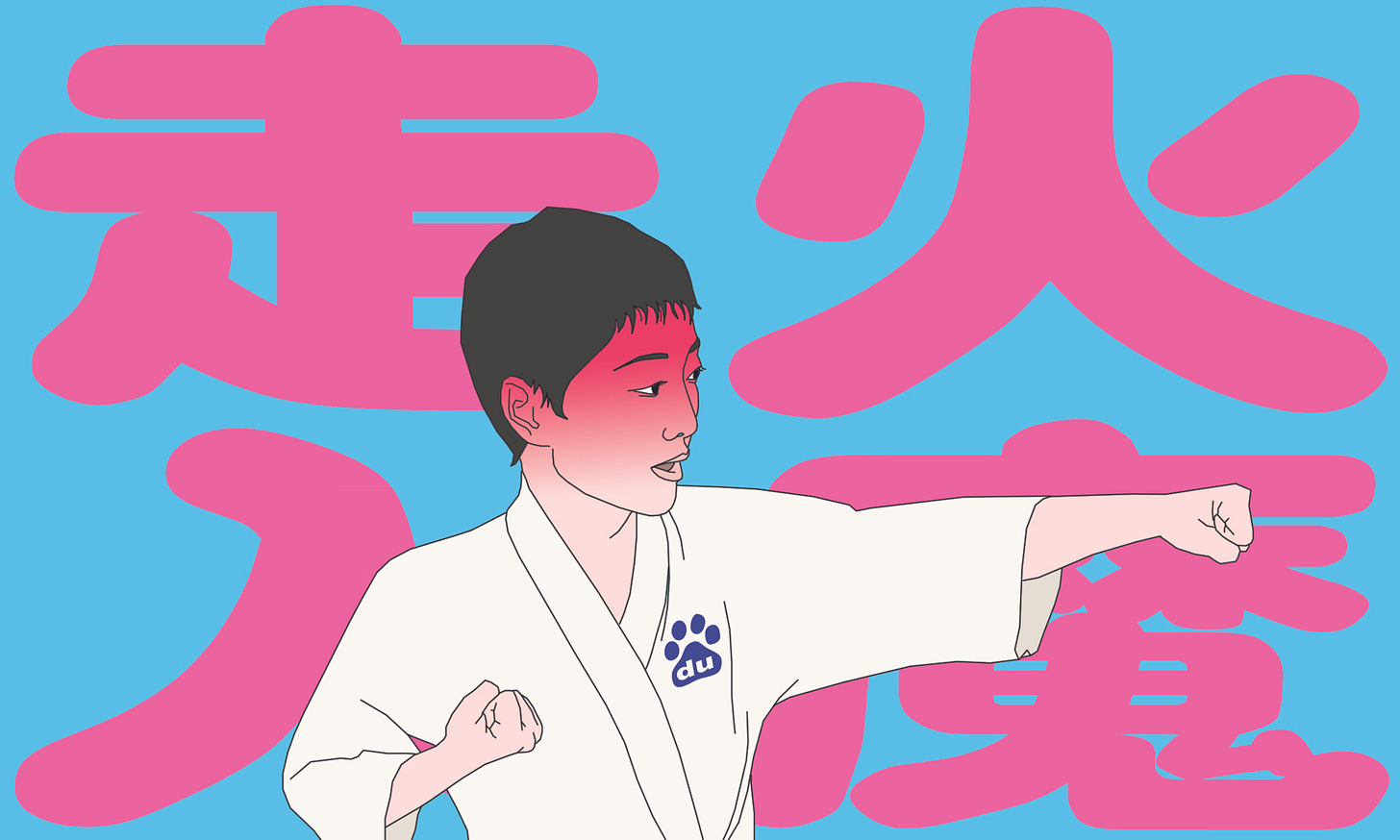"Go over the top" — Phrase of the week
Baidu PR exec builds her social media profile but loses her job

Our phrase of the week is: "go over the top" (走火入魔 zǒuhuǒ rùmó).
Context
Baidu’s head of public relations, Qú Jìng 璩静, has abruptly left the Chinese internet search giant after sparking a public backlash with her views in support of China’s intense workplace culture.
Qu Jing posted five short videos on Douyin between May 1 and 5. She presents herself as a “tough female boss” (女霸总).
One of the most-quoted lines in the media commentary includes:
“Why would I take an employee’s family into consideration? I am not her mother-in-law.”
我为什么要考虑员工家庭?我又不是她的婆婆。
Wǒ wèishéme yào kǎolǜ yuángōng jiātíng? Wǒ yòu búshì tā de pópo.
A few years ago her comments might have been applauded in China’s tough working culture.
But changing attitudes to work in China, and the rejection of the gruelling “996” working hours (9am to 9pm, 6 days-a-week) in its tech industry, meant her recent remarks stirred outrage against both Qu and Baidu.
Qu Jing published an apology letter on May 9 on her Weibo. But that was not enough to calm the intense backlash on social media. On the same day it was reported she had left the company.
The failed attempt to build a social media persona tells a bigger story of how China’s media environment is changing.
There is growing pressure on companies, founders, and executives, to establish their personal brands on social media, and become “KOLs”, or wǎnghóng 网红, on behalf of their company:
Every company has to manage its public image. In the era of social media, some of them also face "internet traffic anxiety".
However, when presenting the corporate image, one should not do things which are too unconventional, or even go over the top.
The controversial remarks posted by Qu Jing on her personal social media account this time appeared too purposeful, impatient, and ultimately resulted in this backlash."
任何一家企业都有形象输出诉求,社交媒体时代,一些企业也普遍面临“流量焦虑”。但输出企业形象,不能剑走偏锋,更不能走火入魔。璩静此次在个人社交账号发表的争议言论,就表现得太功利、太心急,最终遭到了反噬。
"Rènhé yìjiā qǐyè dōuyǒu xíngxiàng shūchū sùqiú, shèjiāo méitǐ shídài, yìxiē qǐyè yě pǔbiàn miànlín 'liúliàng jiāolǜ'. Dàn shūchū qǐyè xíngxiàng, bùnéng jiàn zǒu piān fēng, gèng bùnéng zǒuhuǒ rùmó. Qújìng cǐcì zài gèrén shèjiāo zhànghào fābiǎo de zhēngyì yánlùn, jiù biǎoxiàn de tài gōnglì, tài xīnjí, zuìzhōng zāodào le fǎnshì."
And with that we have our Sinica Phrase of the Week.
What it means
"Go over the top" is a four-character idiom.
Its direct translation is much more colorful: "go fire" (走火 zǒuhuǒ) "enter the devil" (入魔 rùmó).
Often translated as "possessed by the devil", the idiom has a number of potential sources, and translations.
It’s most likely to have originated from the martial arts world.
Also known as "qigong deviation", the concept of "being possessed by a devil" traditionally means something has gone wrong in the spiritual or physical part of martial arts training.
More serious mental and physical disorders can also described as “possessed by the Devil” in Traditional Chinese Medicine.
The phrase has another meaning which is commonly heard in martial arts novels written in the 1950’s and ‘60s.
Louis Cha (Jīn Yōng 金庸), a Chinese wuxia novelist and essayist whose most famous works include Demi-Gods and Semi-Devils (天龙八部) and The Legend of the Condor Heroes (射雕英雄传), used the phrase in his stories.
In this context the idiom can be translated as "excessive and improper practice owing to the obsession to master a move, which often leads to a tragic end".
It means “trying too hard but not focussing on the right things”, which is closer to how it could be translated here.
"Going over the top" is our preferred translation when describing Qu Jing's short and disastrous experiment as a Douyin influencer.
Because, by her own admission, that's exactly what she did.
Andrew Methven is the author of RealTime Mandarin, a resource to helping you learn contemporary Chinese in context, and stay on top of the latest language trends in China.
Read more about how this story is being discussed in the Chinese media in this week’s RealTime Mandarin.


